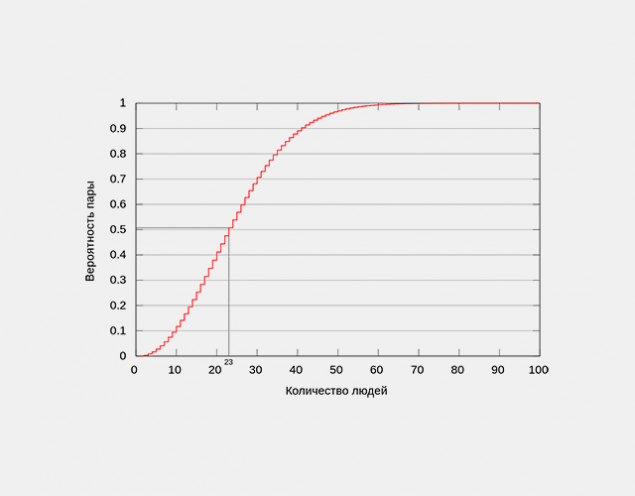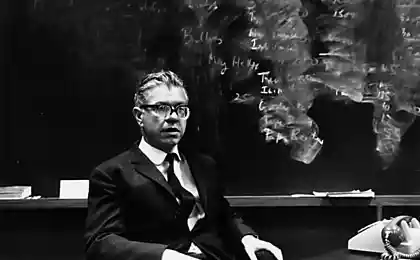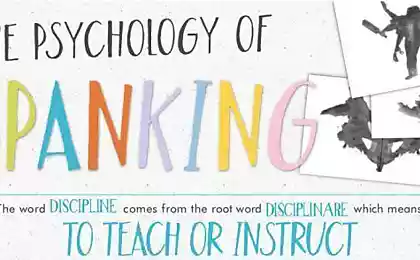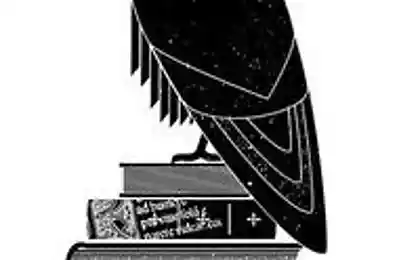687
"Because of poor children grow good parents" 5 of funny scientific paradoxes
Somebody wants to become a beautiful horse? .. Everyone likes a great horse, but no one else wanted it to be. With each generation of children is getting worse, and parents are better; consequently, of all poorer children grow more good parents. The list is endless paradoxes - we will tell you just about the most interesting of them.

The paradox days rozhdeniyaEto statement says that in a group of 23 or more people the probability that at least two of them coincide birthdays (day and month) exceeds 50%. For 60 or more people the chance of greater than 99%, but it is 100%, according to the so-called Dirichlet principle, reached only when the group is not less than 367 people.
This statement may not be obvious, since the probability of coincidence of birthdays two people every day of the year (1/365 = 0, 27%) multiplied by the number of people in a group of 23 participants, 23/365 gives a = 6, 3%. However, this reasoning is incorrect, since the number of possible pairs (253) is much higher than the number of people in the group. Therefore, the statement still can not be considered strictly scientific paradox: the logical contradictions in it, and the paradox is only an intuitive perception of the differences between such person and the circumstances of the results of mathematical calculations.

The paradox lzhetsaZaklyuchaetsya in the statement "What I say now - is false." The statement contradicts one of the fundamental principles of classical mathematics - the law of the excluded middle (is that of the two statements - "A" and "No, but" - one is necessarily false, and the second one - the true, that is, both statements can not both be false - NS).
Assuming that this statement is true, then, on the basis of its content, it is also true that it is, and false. But if it is false, then what it says - it is not true. Therefore, it is wrong, and that this statement - a lie. Hence, the statement is true. In the end, we return to the beginning of the argument.
The paradox krokodilaPo structure that resembles sophistry paradox of the liar. The author of a paradox is considered the ancient Greek orator Corax. The wording of such a paradox. The crocodile grabbed the Egyptian, who was standing by the river, her child. At her request to return the child crocodile replied, "I'll give you a chance to return it, but you must guess I'll give it to you or not. The answer is correct - I give a child, no - leave themselves. " The mother said: "You did not give me a child." "I will not give - said the crocodile - because you're either told the truth or lied. If what I do not give a child the truth, I do not give it, because otherwise not be told the truth. If you tell a lie, then you did not guess, and I do not give a child by agreement. " The mother replied, "But if I told the truth, then you give me a child, as we have agreed. If I did not guess that you do not give a child, you must give it to me, or what I have said is not true. " Who is right - a mother or a crocodile?
The promise of a crocodile is self-contradictory and therefore impossible based on the laws of logic.
Curry's paradox, "If this is true, then there is a mermaid" - reads the statement. Let's try to disprove it. Let the statement "A". If "A" is true, there are mermaids. But we do not know whether the "A". If "A" was true, it would mean the existence of mermaids. But it was claimed by the "A", then the statement "A" - is true. Consequently, there are mermaids.
The reason for the paradox of Curry - use in approving references to itself, which is unacceptable.
The theory more durakaA here with this paradox we face constantly. Greater fool theory could be called Theory of MMM. She claims that you can make money in any securities, regardless of their value, first acquired them, and then selling at a profit, because there is always someone more stupid ("greater fool"), who also expects to quickly resell the asset to profit. On this principle, built speculative bubbles, which necessarily burst, bringing down prices in the mass market.
via naked-science.ru/article/top/nauchnye-paradoksy

The paradox days rozhdeniyaEto statement says that in a group of 23 or more people the probability that at least two of them coincide birthdays (day and month) exceeds 50%. For 60 or more people the chance of greater than 99%, but it is 100%, according to the so-called Dirichlet principle, reached only when the group is not less than 367 people.
This statement may not be obvious, since the probability of coincidence of birthdays two people every day of the year (1/365 = 0, 27%) multiplied by the number of people in a group of 23 participants, 23/365 gives a = 6, 3%. However, this reasoning is incorrect, since the number of possible pairs (253) is much higher than the number of people in the group. Therefore, the statement still can not be considered strictly scientific paradox: the logical contradictions in it, and the paradox is only an intuitive perception of the differences between such person and the circumstances of the results of mathematical calculations.

The paradox lzhetsaZaklyuchaetsya in the statement "What I say now - is false." The statement contradicts one of the fundamental principles of classical mathematics - the law of the excluded middle (is that of the two statements - "A" and "No, but" - one is necessarily false, and the second one - the true, that is, both statements can not both be false - NS).
Assuming that this statement is true, then, on the basis of its content, it is also true that it is, and false. But if it is false, then what it says - it is not true. Therefore, it is wrong, and that this statement - a lie. Hence, the statement is true. In the end, we return to the beginning of the argument.
The paradox krokodilaPo structure that resembles sophistry paradox of the liar. The author of a paradox is considered the ancient Greek orator Corax. The wording of such a paradox. The crocodile grabbed the Egyptian, who was standing by the river, her child. At her request to return the child crocodile replied, "I'll give you a chance to return it, but you must guess I'll give it to you or not. The answer is correct - I give a child, no - leave themselves. " The mother said: "You did not give me a child." "I will not give - said the crocodile - because you're either told the truth or lied. If what I do not give a child the truth, I do not give it, because otherwise not be told the truth. If you tell a lie, then you did not guess, and I do not give a child by agreement. " The mother replied, "But if I told the truth, then you give me a child, as we have agreed. If I did not guess that you do not give a child, you must give it to me, or what I have said is not true. " Who is right - a mother or a crocodile?
The promise of a crocodile is self-contradictory and therefore impossible based on the laws of logic.
Curry's paradox, "If this is true, then there is a mermaid" - reads the statement. Let's try to disprove it. Let the statement "A". If "A" is true, there are mermaids. But we do not know whether the "A". If "A" was true, it would mean the existence of mermaids. But it was claimed by the "A", then the statement "A" - is true. Consequently, there are mermaids.
The reason for the paradox of Curry - use in approving references to itself, which is unacceptable.
The theory more durakaA here with this paradox we face constantly. Greater fool theory could be called Theory of MMM. She claims that you can make money in any securities, regardless of their value, first acquired them, and then selling at a profit, because there is always someone more stupid ("greater fool"), who also expects to quickly resell the asset to profit. On this principle, built speculative bubbles, which necessarily burst, bringing down prices in the mass market.
via naked-science.ru/article/top/nauchnye-paradoksy
Restless Intelligence: Why Smart People often worry
Abandoned Chinese village, completely overgrown with ivy























